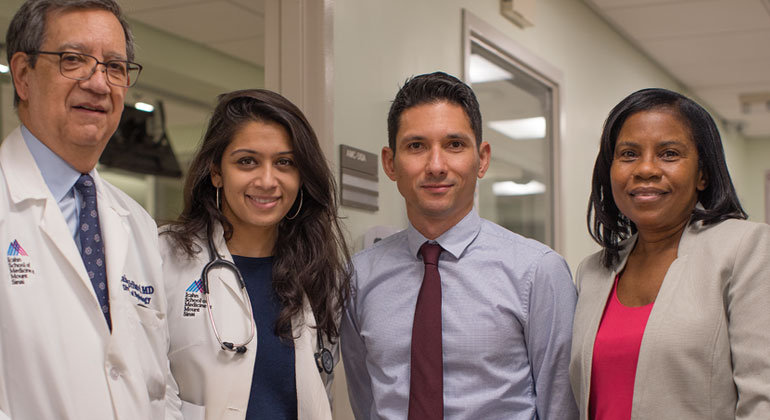General Kidney Disease

Mount Sinai general nephrologists take care of your kidney problems and may refer you to other specialists throughout our Health System to give you the comprehensive treatment you need.
When should you see a nephrologist?
If your kidneys are unable to work properly because of disease or injury, your health is at risk. A nephrologist has the expertise to discover the cause and treat your kidneys.
About Your Kidneys
The role your kidneys play in your overall health is likely more important than you think. Kidneys keep your body healthy by helping control your blood pressure, maintaining the health of your blood and bones, removing chemicals that are harmful, and producing urine.
To treat conditions that affect your kidneys, nephrologists diagnose and treat kidney disorders. We also work together with other internal medicine doctors to create personalized treatment plans.
Kidney Stones
Kidney stones can be painful. Our nephrologists have outstanding experience in managing kidney stones. In addition, we can help reduce your risk of getting more kidney stones. We work with our Health System urologists to use the best technique for treating your kidney stones.
We can treat your kidney stones at convenient Mount Sinai Hospital locations.
Kidney Biopsy
To make the most accurate diagnosis, your general nephrologist may want you to have a biopsy—removing a small bit of kidney tissue to examine it under a microscope. Mount Sinai has a dedicated kidney biopsy service. Our biopsy experts perform biopsies regularly, using the latest real-time ultrasound techniques. Frequently, we can perform your biopsy on an outpatient basis so you can go home the same day.
To diagnose your kidney disease and get you treatment as soon as possible, we work closely with your referring nephrologist and our kidney (renal) pathologists to get your biopsy results quickly.
Mount Sinai offers services in the following areas:
- Chronic kidney disease
- Dialysis
- Geriatric nephrology for kidney disease
- High blood pressure (hypertension)
- Kidney filtering disease (glomerulonephritis)
- Kidney transplantation
- Polycystic kidney disease (PKD)